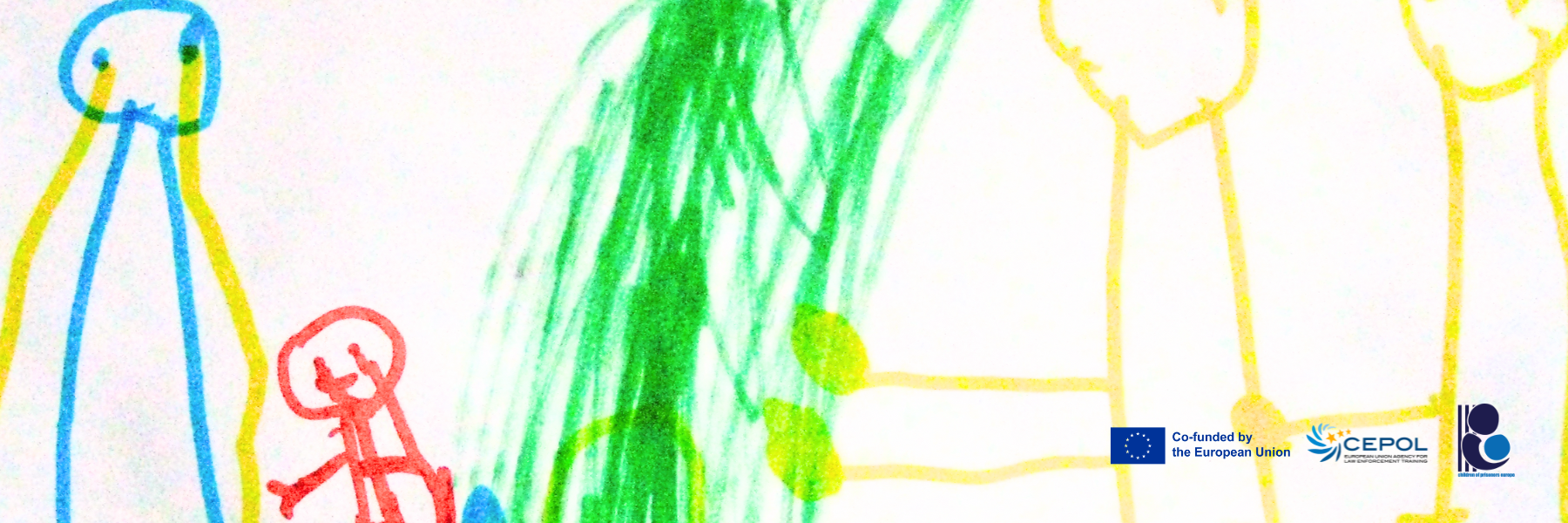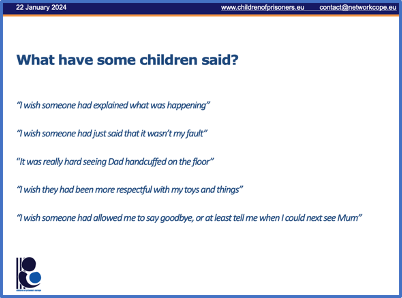“Even if there was just one police officer to sit down and talk to us about it… it would have been a lot easier as a family, we wouldn’t have been as stressed and we would have been able to get over it.”
— boy, 17, England

COPE training session with CEPOL (European Agency for Law Enforcement Training)
On January 22, COPE delivered an introductory training session to 68 law enforcement professionals from 10 EU Member states on child-sensitive arrest procedures, framed by Council of Europe Recommendation (2018)/5 concerning children with imprisoned parents and the EU Charter of Fundamental Rights. COPE shared testimonies of children who have witnessed a parent’s arrest, illustrating how this experience can impact them and how law enforcement professionals can better protect children’s rights and well-being while carrying out the arrest of a parent (and during other encounters with law enforcement officials).

While each arrest is unique—as is every child and their needs— a parent’s arrest is almost always unexpected and usually experienced by children as traumatic. It may involve confrontation or force; children may witness a parent handcuffed and removed from a family home. Even when children are not physically present during the arrest, returning to an unexpectedly empty home or hearing about the arrest from others can be distressing and confusing.
Shock and fear resulting from the use of force; confusion and concern for a parent’s wellbeing; upset and stress by being placed in alternative care; guilt and blame that children may assume; shame and stigma experienced surrounding an arrest— these are some of the feelings that children have reported relating to arrest of a parent.

Law enforcement officials have an opportunity to protect the rights of children during their parent’s arrest, protect their well-being and promote their rights. Drawing on good practice from within the COPE network and beyond, COPE outlined the following measures that law enforcement officials can take:
- Provide families with ‘Contact Cards’ to provide families with practical information e.g., support services (NGO/community services) or useful addresses in the immediate aftermath of a parent’s arrest.
- Early-career training with law enforcement officials on child-rights and child-sensitive responses during arrest encounters (and others, including searches).
- Child-friendly hearing rooms in police precincts and posters for custody suites stressing the importance to parents of making police officers aware of children and their support needs.
Feedback about the training was positive, with the content being described as “eye-opening” and presented in a comprehensive way. In answer to the question ’what was most valuable about the training’, participants stated, “the feelings of the children and the way that police should explain about the parent‘s arrest”; “how to look at children when they are in a crisis situation such as being a wittness when a parent is handcuffed”.
COPE thanks CEPOL for facilitating this introductory training session with such a large and international group of European law enforcement professionals on the rights and needs of children with a parent in conflict with the law. Future sessions are being planned to go more in-depth on topics highlighted during this preliminary session.

